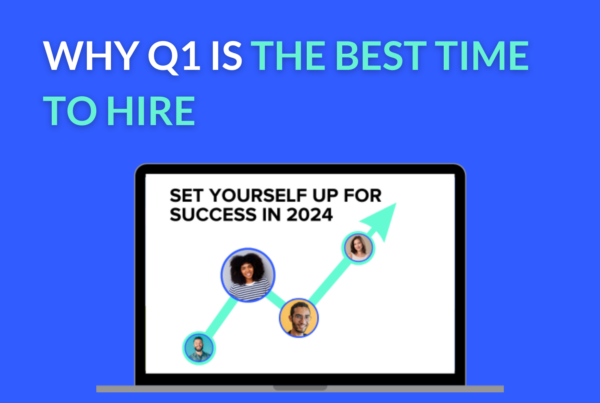At this point, we’ve all seen the conversation surrounding ChatGPT. One of the most advanced chatbots to date is ChatGPT, designed to answer questions and provide information in a conversational manner. Trained on a huge amount of data, Chat GPT can understand and respond to natural language input. This has made it an ideal tool for customer service and support.
FinTech is no stranger to artificial intelligence (AI), using the tool for Insurance, Loans, and Consumer Personalization. Even before ChatGPT took the world by storm, 78% of financial services surveyed they already use at least one artificial intelligence feature. So how has ChatGPT changed Finance?
 What is ChatGPT?
What is ChatGPT?
Introduced by the AI research company OpenAI, ChatGPT is an elaborately trained model that interacts with humans conversationally. The dialogue format makes it possible for ChatGPT to answer follow-up questions, admit its mistakes, challenge incorrect premises, and reject inappropriate requests.
What’s Changed?
ChatGPT technology has helped banks and financial institutions to streamline their operations, reduce costs, and improve customer service. The service has relieved staff duties, enabling many routine tasks to be automated. The AI service has also helped FinTech companies to understand their customers’ needs and preferences. This will be vital for improved products and services within companies.

Benefits of ChatGPT
1. Improved Customer Experience
Because ChatGPT can understand natural language, it’s able to understand and respond to customers as if it were a human conversation. They can help customers with queries regarding their accounts, transactions, or even financial advice.
2. Increased Efficiency
Automation is key to efficiency in FinTech – ChatGPT helps with this. We’ve already seen artificial intelligence expedite the loan application process. When interacting with customers, the AI system collects data and documents required for loan applicants. Through this, ChatGPT can analyze the data to determine creditworthiness.
3. Personalization
Artificial intelligence is already being used to make financial experiences more personalized. ChatGPT is now being used to provide personalized services to customers through the analyzation of customer data and providing tailored recommendations.
4. Increased Speed and Accuracy
Processing large amounts of data quickly and accurately has led to faster decision making and improved accuracy in assessments.

Disadvantages of ChatGPT
With most artificial intelligence software, there are some risks and challenges associated with ChatGPT. The service has extremely advanced capabilities of language, but when used for FinTech and banking we see limitations in:
1. Data Privacy and Security
Most AI systems are trained on vast amounts of data – ChatGPT is no different. The more data that is gathered to train these systems, the more accurate the results. However, the concern of data privacy and security is always a concern with FinTech. Financial information is often highly sensitive and confidential, and misusing information can lead to serious repercussions.
2. Complex Financial Nomenclature
ChatGPT may find it difficult to understand the complexity of financial terms and concepts specific to sectors or markets. With these technical barriers, ChatGPT could be limited to providing accurate and relevant answers to users. If customers don’t have the necessary information available, there could be problems in decision-making mode.
3. Regulatory Compliance
Throughout the past year, there’s been tightening in financial regulations. Artificial intelligence systems must comply with changing regulations, and not violate any ethical standards. No single technology will solve this privacy issue, but encryptions within these learning technologies could help combat the ever-changing privacy challenges.
4. Personalization
Bank personalization has been at the forefront of what customers look for in FinTech companies. Although this feature has helped reduce the workload for employees, ChatGPT is a language model intended for general purposes. Highly personalized results tailored to the individual customer have been more attractive models.

What to Expect From ChatGPT?
ChatGPT has made the future of AI in FinTech a hot topic, and we’re expecting to see much more from the tool this year. Here are some of the benefits we’re expecting from ChatGPT this year:
1. Improved Customer Experience
ChatGPT is ready to be available 24/7 for customer support in automated chatbots. Helping employees with the workload, AI can enhance overall customer experiences with immediate answers to any questions.
2. Increased Efficiency
AI is increasingly being used for automating repetitive tasks to free up employee time. They’re now free to do more complex tasks, improving efficiency and productivity.
3. Cost Savings
The introduction of ChatGPT to be used for mundane and repetitive tasks also saves on hiring and training costs. Automation of tasks reduces the need for manual labor.
4. Increase of Speed and Accuracy
Processing large amounts of data quickly has led to faster decision-making and improved accuracy. Many FinTech’s have found this to be helpful in risk assessment during the loan process or insurance.
Companies using AI and ChatGPT

Capital One
Capital One uses AI for customer support, providing personalized financial advice to customers. Their chatbot has also helped their customers manage finances and answer questions.
 Mastercard
Mastercard
Mastercard has used AI to detect and prevent fraud. Like Capital One, they have also implemented a chatbot to help provide their customers with financial advice and account management.

BBVA
BBVA provides personalized financial recommendations through the analyzation of customer spending patterns and other financial data.
Your Partner in Growth
As the FinTech industry continues to grow, so does the need for talent to facilitate this. At Storm2 we have specialized in connecting FinTech talent with disruptive FinTech players such as yourself. We can assist in any stage of your growth by connecting you with the right people. Please don’t hesitate to get in touch and we would be more than happy to see how we can help and support you on your journey.



 Mastercard
Mastercard


